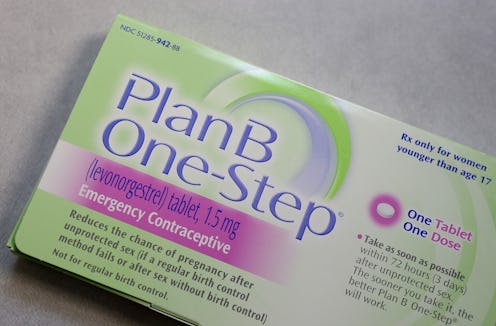News
Of Course There's a Catch To The New Plan B Law

We knew it was too good to be true.
In June, the Food and Drug Administration approved new laws that will allow the morning-after pill to be sold over the counter to women of all ages.
But while girls under the age of 17 will now technically be able to acquire emergency contraception without a prescription, that doesn't mean they'll necessarily be able to afford it. That's because the FDA also ruled this week that Plan B One-Step manufacturer Teva Pharmaceuticals will retain three years of exclusive rights to sell its product to women of all ages.
Yup.
That means if you're under 17, you'll have to pay brand name prices for a product that achieves the same result as its generic counterparts. Plan B One-Step can retail for up to $60, while generic versions typically cost half as much. If you're a low-income teenager who's not exactly eager to borrow money from her parents, that could mean the difference between buying the pill, and possibly getting pregnant.
U.S. District Judge Edward Korman, (the same judge who ruled against the old restrictions on over-the-counter sales and criticized Obama for his conservative stance on the issue), has spoken out against this latest development, calling it a "sweetheart arrangement" between the FDA and Teva.
A study of emergency contraception policy in six countries by the Guttmacher Institute illustrates just how backwards the U.S. is when it comes to this healthcare issue. In the United Kingdom, for example, the morning-after pill is free of charge. In Malaysia, a strip of pills preventing pregnancy for up to five episodes of unprotected sex costs a maximum of $6. In China, emergency contraception sets users back "a few cents."
Big pharma seems to have rigged the game again.